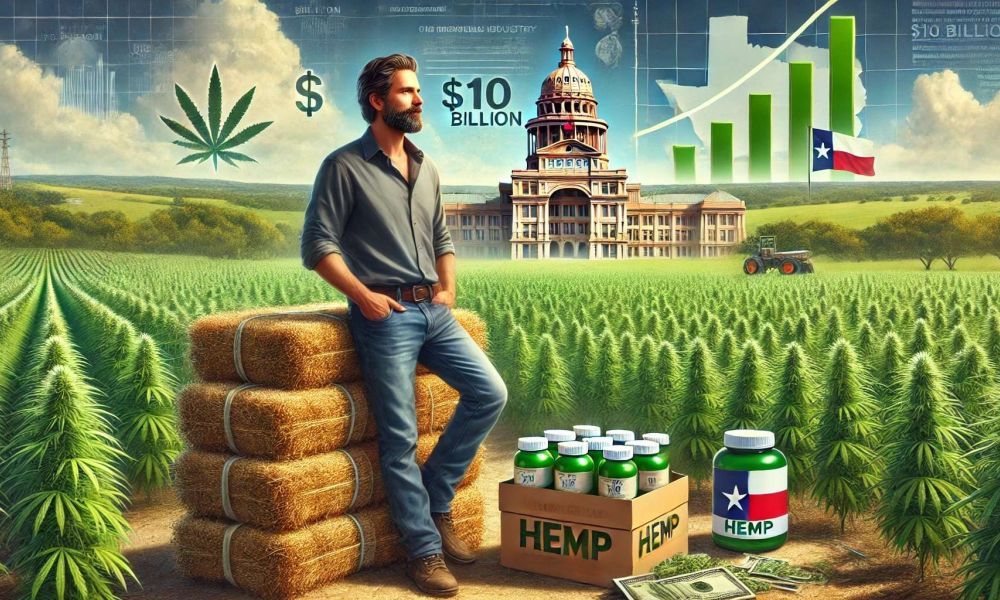“Who are you going to believe, me or your own lying eyes?” — Groucho Marx, noted comedian and cigar enthusiast
This week’s release of the Whitney Economics study on the Texas Hemp Industry should have been an eye-opener—at least for anyone willing to acknowledge reality. The more I review the numbers and rhetorics surrounding SB 3, the clearer it becomes that this isn’t about responsible regulation—it’s a deliberate effort to mislead the public and lawmakers while dismantling a thriving industry.
It would be almost laughable if it weren’t so blatant. On one hand, Sen. Perry ignores a vast body of evidence, from thousands of constituent testimonials to gold-standard, peer-reviewed studies demonstrating the safe and effective health benefits of cannabinoids. Instead, he insists that hemp retailers are preying on Texas children, addicting them, and causing untold harm to millions.
At the same time, the Comptroller of Public Accounts’ fiscal note—the official economic impact analysis provided to the legislature—downplays the industry’s contribution to the state, suggesting that Texas hemp businesses generate only $10 million per year in tax revenue. The reality? It’s at least TWENTY TIMES that amount.
So which is it? Is the Texas hemp industry so big, fearsome, and dangerous that it must be slashed down to size? Or is it so small and insignificant that lawmakers can vote to ban its products without fear of economic repercussions in their districts? They can’t have it both ways.
What’s happening here is not policymaking—it’s prohibition masquerading as regulation, built on fearmongering and bad math.
Flawed Fiscal Note: Bad Data, Worse Assumptions
The fiscal note attached to SB 3 is deeply flawed, significantly underestimating the economic impact of the Texas hemp industry. The Comptroller’s office arrived at its revenue projections based on an indefensible assumption: that a small sample of hemp retailers in Austin accounts for 25% of all sales statewide.
There is no data to support this claim, yet this flawed assumption forms the foundation of the state’s economic analysis of SB 3.
By contrast, Whitney Economics conducted a comprehensive, data-driven study of the industry and found:
• The Texas hemp-derived cannabinoid industry generates $5.5 billion annually.
• It employs more than 53,300 Texans, with $2.1 billion in wages.
• It contributes $267.7 million annually in state sales tax revenue.
• The retail sector alone produces $4.3 billion in sales, with manufacturing and wholesale adding another $1.26 billion.
Instead of considering this robust statewide industry, the Comptroller’s analysis relied on tax returns from a handful of vape shops in Austin, assumed those stores represented one-quarter of the entire state’s market, and extrapolated from there.
This is not a credible methodology. It grossly understates the economic fallout that SB 3 will cause.
The True Cost of SB 3
The fiscal note estimates only a $27 million loss in state revenue over two years. But it ignores the full economic impact of dismantling an industry of this scale.
According to Whitney Economics, the actual consequences would be far greater:
• $3.1 billion in lost retail sales
• $194.9 million in lost tax revenue
• 40,201 jobs eliminated
• $1.59 billion in lost wages
• $7.5 billion in total economic losses

This bill won’t just hurt individual business owners—it will have far-reaching economic consequences for:
• Commercial real estate (as retailers shut down storefronts across Texas).
• Supply chains (manufacturers, wholesalers, and logistics providers will be impacted).
• Local economies (thousands of Texans will lose their jobs and spending power).
The fiscal note, by narrowly focusing on direct sales tax revenue, fails to account for these larger disruptions.
Misinformation and Fear Tactics
Beyond the faulty fiscal analysis, SB 3’s backers are relying on scare tactics and misleading testimony to push the bill forward.
When veterans, chronic pain sufferers, epilepsy patients, and other Texans testify about the life-changing benefits of hemp-derived cannabinoids, proponents of the bill deflect by cherry-picking isolated incidents and misrepresenting their significance.
At the Senate State Affairs Committee hearing, I saw this firsthand. A witness gave an emotional testimony about a family member’s death, strongly implying that cannabis was to blame. But when the microphones were off, another witness calmly asked what actually happened.
Her response? “It was drugs, OK?”
This kind of vague, unverified testimony is being weaponized to justify dismantling a legitimate industry. Sen. Perry then seized on this uncorroborated story, using it as justification to attack law-abiding business owners.
This isn’t policymaking—it’s prohibition by way of fearmongering.
The Bottom Line
SB 3 is not about protecting the public—it’s about eliminating a $5.5 billion industry under the guise of regulation. The fiscal note is built on faulty assumptions, and the narrative supporting this bill is driven more by a political agenda than by facts.







